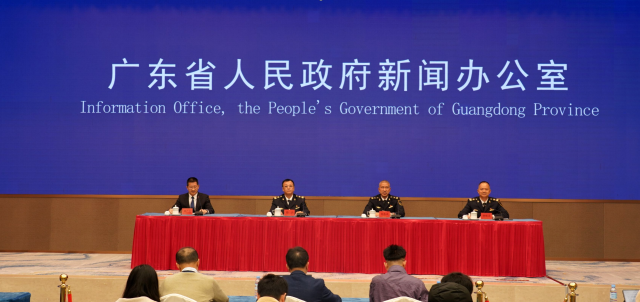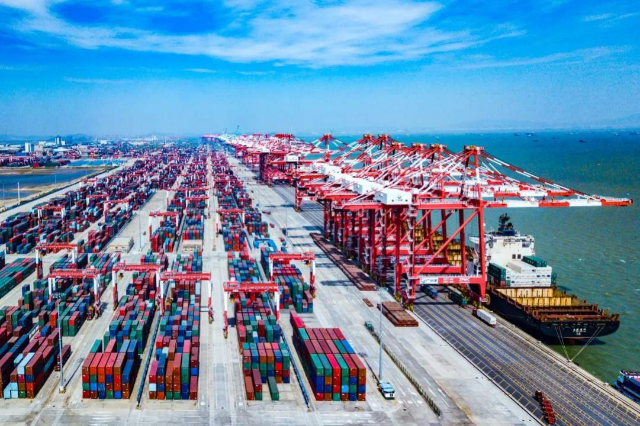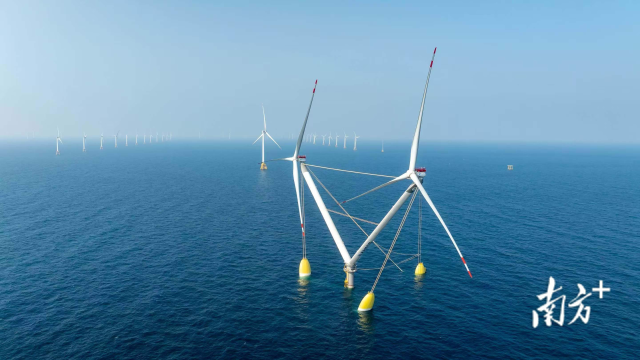
Photo: Zeng Xiangxing
The Guangdong Maritime Safety Administration held a press conference on the morning of January 10 to introduce the development of the "New Guangdong on the Sea" initiative throughout the past year, a strategic vision in the government's report for transforming the province into a leading maritime hub.
According to the officials, in 2024, Guangdong recorded 6.525 million inbound and outbound vessels, 2.76 billion tons of cargo, and processed 46.87 million TEUs (Twenty-Foot Equivalent Units), all showing year-on-year growth.

Photo: Nanfang Plus
These figures are the result of the implementation of measures aimed at reducing logistics costs and enhancing water transport efficiency, such as integrating maritime services in the Pearl River Delta, promoting smart maritime systems, and supporting the development of world-class ports like Nansha Port's automated terminal. Additionally, initiatives like the "Single Window" trade system and unified vessel inspections have significantly reduced coal transport ships' berthing time by 10%.

Photo: Nanfang Plus
A major highlight of the quality of Guangdong's marine improvement is the offshore wind energy development. With a commitment to clean energy, the province has successfully brought 33 offshore wind projects to full operational capacity, producing a combined total of 12.15 million kilowatts of renewable energy. This includes the world's largest monolithic floating wind power platform, "Mingyang Tiancheng (明阳天成号)".
In marine ranching, Guangdong has issued guidelines to reduce conflicts between maritime transport and marine farming, enhancing navigation safety. Support has been provided for major aquaculture platforms and integrated wind-fishery projects, ensuring the secure construction of marine ranching facilities, including 10 platforms and 109 gravity cages in 2024.
Efforts have also been made to expedite maritime procedures for energy projects like oilfields, LNG terminals, and large-scale petrochemical developments. Comprehensive navigation support services have been provided for offshore oil platforms, including electronic chart production and enhanced maritime surveillance.
Meanwhile, the marine ecological protection sector saw substantial advancements in 2024. The Guangdong Maritime Safety Administration (GMSA) has promoted the digital platform for ship water pollutant monitoring and better data integration, established multifunctional water service zones, and deployed intelligent water pollutant collection systems like the one in Yunfu. The maritime authority has also focused on reducing ship emissions by using remote monitoring technologies and enforcing regulations to lower sulfur content in fuels, resulting in a 2.9% non-compliance rate in 2024. Furthermore, GMSA has supported the development of new energy vessels and promoted biofuel refuelling services to drive the green, low-carbon transformation of the shipping industry.
Reporter: Zeng Xiangxing
Editor: Hu Nan, James, Shen He
















